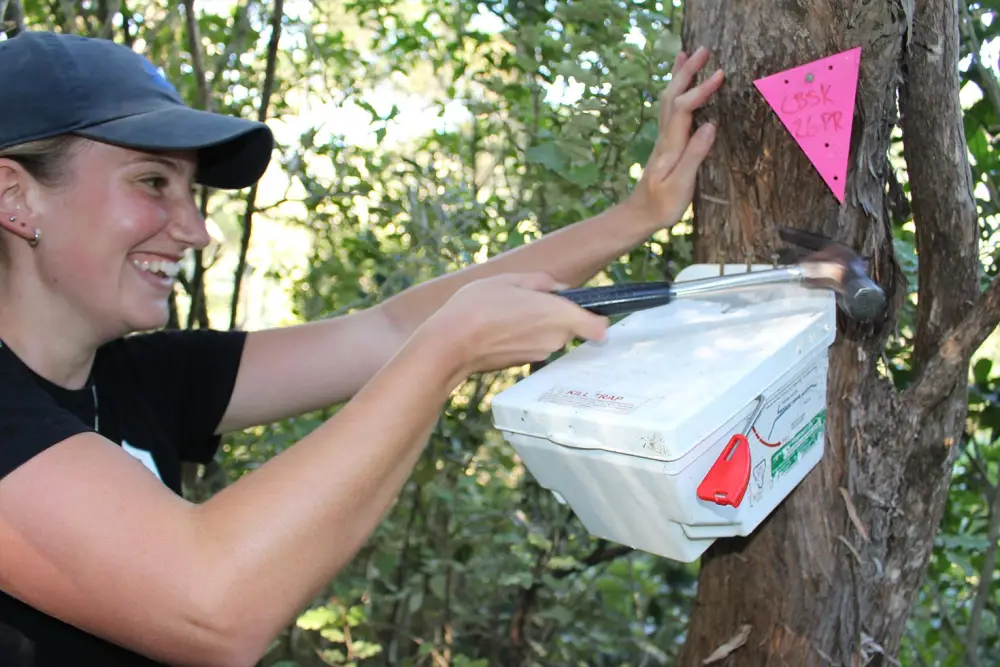Ask a question or call 0800 422 733
Kaitiaki Whenua – Trainee Ranger
-
Tahatū, Career Navigator
Discover career possibilities and how to reach your goals. tahatu.govt.nz(external link)
-
Locations and dates
Richmond:
20 July 2026 -
Study options
Full time only
-
Length
52 weeks: 47 teaching weeks - includes 13 weeks of work placement plus 5 study break weeks
-
Total credits
120
-
Fees
2026: $7,321 plus $300 Student Services Fee
A Student Service Fee applies (2026; $2.50 per credit).
Fees listed are for each year of the programme, indicative only and may vary with course selection.
View course details for individual fees. -
National qualification code
NZ2963
Explore conservation technology, pest management, and environmental monitoring techniques that are rejuvenating New Zealand's ecology.

Roll up your sleeves and get your hands dirty in the outdoors as you learn the core skills required to become a ranger.
Learn the core skills required to be a ranger, including how to build hiking tracks, animal and pest control, New Zealand ecology, and how to use the latest conservation technology.
Work alongside the Department of Conservation and regional council staff to complete a mixture of practical and theory skills geared towards entry into a career in conservation.
Explore conservation technology, pest management, and environmental monitoring techniques that are rejuvenating New Zealand's ecology. Be enriched by how Te Ao Māori connects with conservation through kaitiakitanga (guardianship). Gain work opportunities with practical fieldwork and summer work placements off-campus.
Skills taught include:
- Animal and pest control
- Understanding New Zealand’s ecology
- Using conservation technology
- How to build and maintain hiking tracks
This 12-month programme is full-time. Classes are 9 am - 3 pm, 5 days a week, and you will be based at the NMIT Richmond campus.
Elective courses
As part of your Kaitiaki Whenua Trainee Ranger journey, you can tailor your learning by selecting from a range of elective courses. These electives are designed to deepen your practical skills and cultural understanding in conservation work, allowing you to focus on areas that align with your interests and career goals.
You can choose which electives to take - you don’t need to do them all. Each course offers unique experiences and insights, from hands-on fieldwork to cultural engagement with tangata whenua.
🗓️ Elective selection deadline: TBC – We’ll confirm the date soon, so keep an eye out for updates!



